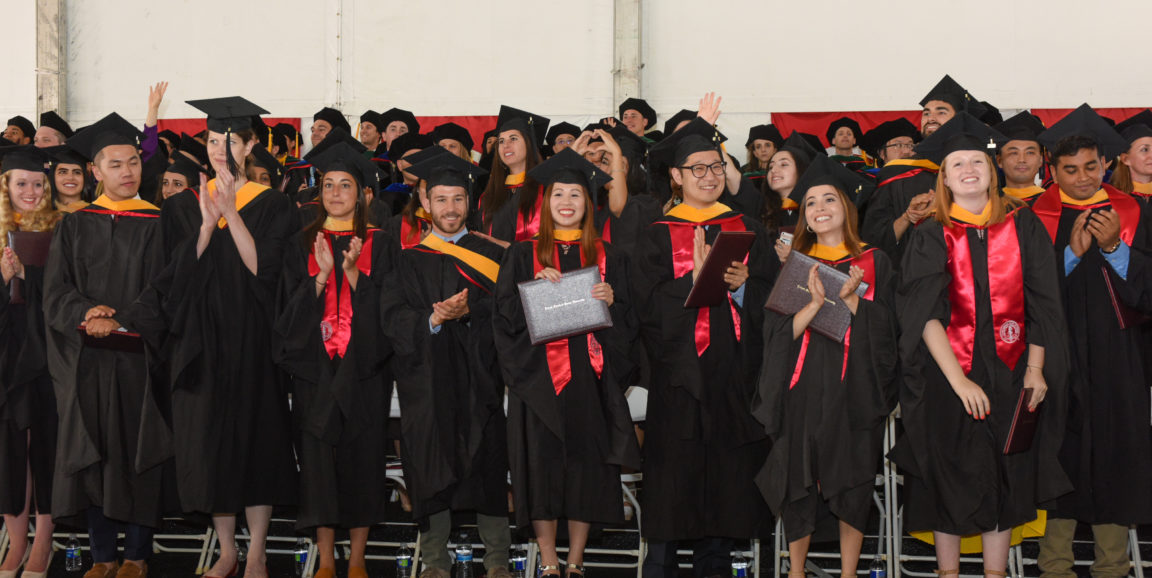In a shady tent beneath a cloudless sky on campus, 166 School of Medicine graduates-to-be were seated on the stage with faculty and Dean Lloyd Minor, MD, for the 2018 diploma ceremony on Saturday. The audience was filled with hundreds of their family members, friends and classmates, who sent out cheers, hollers and even a few ululations as graduates received their medical degrees and graduate degrees in the biomedical sciences.
In my story about the event, I wrote about the messages to balance inquiry and empathy — and to rebound from the inevitable failures of ambitious science — that were among the remarks by this year’s commencement speakers. One of those speakers was Nobel laureate Paul Berg, PhD, a professor emeritus of biochemistry at Stanford:
Berg, 91, affirmed the 'scientific core of medicine,' noting that breakthrough discoveries can be made both in the lab and at the bedside. 'Physicians, by their encounters with and proximity to patients displaying a range of pathologies, are often the first to identify novel and disruptive aspects of human biology,' he said. 'Indeed, physicians have initiated some of the most significant discoveries that changed the course of medical thinking and progress.'
But the challenge for those who practice medicine has unique demands, said Berg, who won the Nobel Prize in chemistry in 1980 for creating the first recombinant DNA. It is 'not for the faint-hearted, for it will engage every ounce of your powers of patience, understanding and empathy.' He emphasized the indispensable role of investigation, and charged the graduates to 'aim high and keep learning, be skeptical of accepted certainty and stay fast in the belief that facts matter.'
Minor also encouraged students to be passionate advocates for science:
'As Stanford Medicine graduates, you have a unique understanding of the transformative benefits of discovery,' he said. 'So, today, as we send you off to change the world, I’d like to ask you to help me share those life-changing benefits — to be a spokesperson, advocate and defender of science.' He encouraged graduates to 'inspire others by your passion for your work,' and 'let your enthusiasm and pride be infectious.'
'Imagine the Stanford Medicine classes of 2038 and 2048,' Minor said, 'full of today’s youngsters inspired by your example and a world celebrating how the science of tomorrow has overcome the greatest challenges of today.'
Some students, like Mariko Bennett, MD, PhD, had spent a full ten years of research and study leading up to this day. She’ll start her pediatric neurology residency at Children’s Hospital of Philadelphia in just a few days. Her classmates Akhilesh and Mythili Pathipati, newlyweds since April, are now both newly minted MDs, heading off to residencies at Harvard where they first met. Meanwhile, Eric Teasley, who celebrated earning his MD with family and friends, summed up the day this way:
'I feel overwhelmed. I don’t even know. Fantastic,' said Teasley, who also earned a master’s degree and has been working on a PhD in bioengineering. 'I feel very loved today. It’s been a long road.'
Congratulations to all the 2018 School of Medicine graduates!
Photo by Steve Fisch




